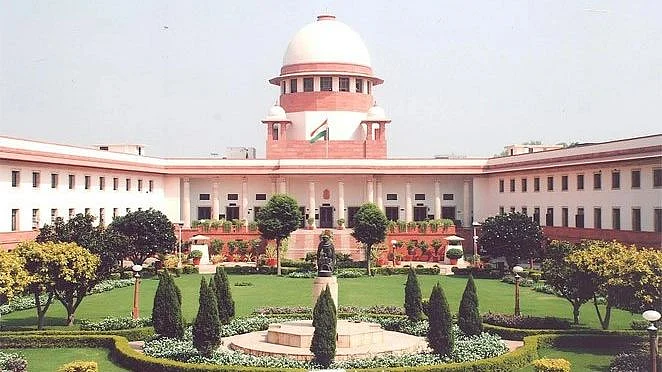In a significant observation, the Supreme Court stated that familial relationships may take the form of domestic, unmarried partnerships or even queer relationships, adding that an "atypical" family unit is as genuine as its traditional counterpart and must be accorded equal protection by law.
The traditional concept of a family implies a "single, unchanging unit" with a mother and father (who remain constant over time) and their children.
However, a bench comprising Justices DY Chandrachud and AS Bopanna, said that this assumption ignored the circumstances which may lead to a change in one's familial structure and the fact that several families do not conform to this expectation to begin with.
"Familial relationships may take the form of domestic, unmarried partnerships or queer relationships," the bench said in its 16 August, judgment, which was uploaded on the court's website on Sunday, 28 August.
These observations gain significance amid demands by activists to legally recognise LGBTQ marriages and the right of live-in couples from the community to adopt children.
'Women Can't Be Denied Right to Maternity Leave'
The court's remarks came after its order stating that a working woman cannot be denied her statutory right to avail maternity leave to take care of her biological child just because her husband has two children from his previous marriage and she had taken leave to take care of one of them.
The court had said that a household may be a single-parent one for a variety of reasons, such as separation, divorce, or death of a spouse.
"Similarly, the guardians and caretakers (who traditionally occupy the roles of the "mother" and the "father") of children may change with remarriage, adoption, or fostering," the bench said.
It added that the law must not be used to disadvantage families which are different from "traditional" ones.
"The same undoubtedly holds true for women who take on the role of motherhood in ways that may not find a place in the popular imagination," Justice Chandrachud said in the court judgment.
"The grant of maternity leave under Rules of 1972 is intended to facilitate the continuance of women in the workplace. It is a harsh reality that for such provisions, many women would be compelled by social circumstances to give up work on the birth of a child, if they are not granted leave and other facilitative measures," the judgment further stated.
It also said that no employer can perceive childbirth as detracting from the purpose of employment and that the former has to be considered to be a natural incident of life in the context of employment. Hence, the court said, the provisions of maternity leave must be construed as per that perspective.
It also said that gendered roles assigned to women and societal expectations meant that women were always pressured to take on a disproportionate burden of childcare work.
The bench referred to a survey conducted by the Organisation for Economic Co-operation and Development (OECD), stating that women in India spend up to 352 minutes everyday on unpaid work (including childcare) – which is 577 percent higher than the time spent by men for the same.
"The support of care work through benefits such as maternity leave, paternity leave, or child care leave (availed by both parents) by the state and other employers' is essential," the court noted.
